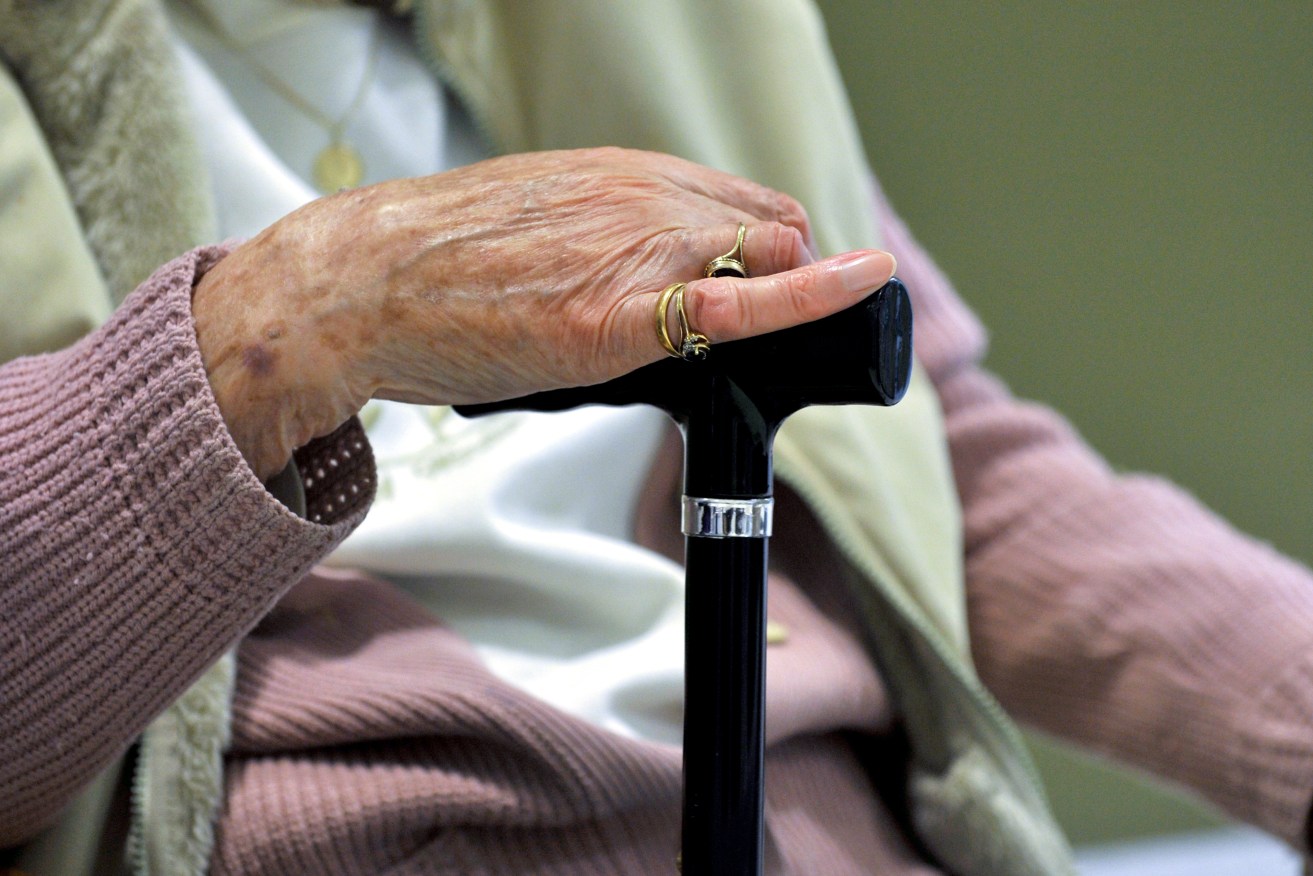Unpaid family carers: the unsung heroes of Australia
Australia’s millions of unpaid carers deserve much more support from government to avoid often terrible consequences when the pressure gets too much, writes David Militz.

Photo: AAP/Alan Porritt
Deloitte Access Economics found in 2015 that replacing the army of unpaid carers around the country with a paid aged care and disability workforce would cost taxpayers $60.3 billion a year.
To put that in perspective, it would require a very brave government to divert the equivalent of the entire defence budget ($27.2 billion) and education budget ($33.7 billion) so that millions of Mums and Dads, brothers and sisters and husbands and wives around Australia could have a normal life.
Clearly, that isn’t going to happen any time soon.
But with the terms of reference for the Royal Commission into Aged Care Quality and Safety announced recently, it is timely to look at the essential service unpaid family carers give to the aged care sector and ask: is it sustainable?
Unpaid family carers, or ‘informal carers’ as the government calls them, are those selfless people who provide 24-hour care and support to family members and friends who have a disability, mental illness, chronic condition, terminal illness, drug or alcohol issue, or who are aged.
There are nearly three million unpaid carers and more than a million of those are primary carers with daily hands-on responsibilities for showering, dressing, feeding and entertaining their loved ones – an amazingly demanding seven-day a week job.
The other two million are the secondary carers who just ‘pop over’ on the weekends to check that their aging parents are okay, that they’re taking their medication and are fit and healthy. They cook meals for them during the week, take them shopping or regularly do their gardening and home maintenance. They are ordinary people just like you and me.
These seemingly small acts of love – usually undertaken in addition to full-time jobs and other responsibilities and often without the help of other family members who may live overseas or interstate – enable aging Australians to stay in their own homes often until death.
Unpaid carers cope for months and years quietly and with little complaint. Then eventually something gives…
As highlighted by the Oakden scandal and recent Four Corners exposé, the aged care sector in Australia is facing enormous funding and resource challenges. Demand for aged care accommodation exceeds supply, with more than 100,000 people waiting for an aged care package.
It is these unpaid family carers who are playing a significant and under-recognised role in improving the capacity of the aged care sector, acting as a safety net for the community and propping up the system.
At Carers SA, we see the cracks in this model in sharp focus.
Unpaid carers cope for months and years quietly and with little complaint. Then eventually something gives – either emotionally, physically or financially – and four clear scenarios play out.
The first scenario is that the unpaid family carer gives up their full-time or part-time job to support the person they love. The downside for the person is the loss of income and external stimulation and for the community, there is one less taxpayer to fund our country.
The second scenario is where the family decide to book the person into a residential facility – if they can find a place.
The third scenario is the person can’t find a residential care placement and by default enters the struggling hospital system… and often doesn’t leave.
Both scenarios place pressure on an already overloaded, inefficient health, mental health, disability and aged care system.
The fourth and worst scenario is that the carer buckles under that physical, emotional and financial pressure which has built up over time. This can result in both the unpaid family carer and the person being cared for entering the hospital system, which is a terrible outcome for everyone.
During National Carers Week 2018, we certainly want to shine a light on the three million unsung heroes of the aged care and disability sector. They deserve our acknowledgement and thanks for their contribution, not just to the well-being of a large part of our population, but the savings they contribute to our national economy.
It is also a time to re-focus Government attention on resourcing this sector more generously. It is imperative the Royal Commission into Aged Care Quality and Safety recognises the importance of well-supported, unpaid family carers for the sector and makes recommendations about its long-term sustainability.
We need a strong financial commitment from the Government. The carer’s allowance should reflect the increasing cost of living in Australia, and more funding should be provided for short-term respite placements and carer support agencies around Australia.
Legislating specific leave for unpaid family carers in addition to personal leave will allow our unpaid carers to sustain their caring role. Finally, aged providers need to invest more time and money to ensure care provided to older Australians is in partnership with families.
If you are an unpaid family carer who is needing support please call Carers SA on 1800 242 636.
David Militz is CEO of Carers SA.
This week is National Carers Week.




